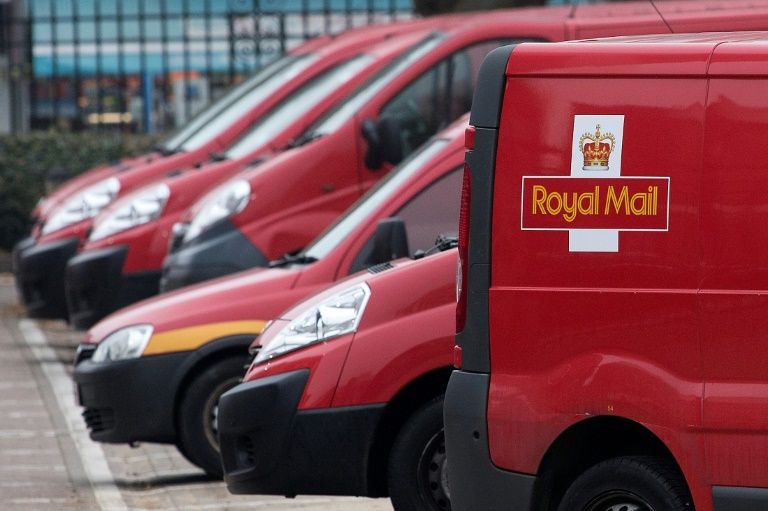Royal Mail parcels revenue overtakes letters on pandemic
London (AFP) – British postal operator Royal Mail on Thursday said revenue from parcel deliveries has for the first time overtaken that from letters in the wake of the pandemic.
Reporting results for its first half, or six months to the end of September, the former state-run company said growth in online shopping during the coronavirus outbreak led to group revenue growth of almost 10 percent to £5.67 billion ($7.39 billion, 6.23 billion euros) year-on-year.
“For the first time, parcels revenue at Royal Mail is now larger than letters revenue, representing 60 percent of total revenue, compared with 47 percent in the prior period,” group interim executive chair Keith Williams said in an earnings statement.
“Whilst we have done exceptionally well in terms of revenue and have seen real growth for the first time since privatisation (in 2013), we have recorded a first half” operating loss — largely owing to restructuring charges.
The losses were £176 million at the core UK business and £20 million for the group overall when also taking into account operations abroad.
Royal Mail added: “We have also incurred significant costs due to increased parcel volumes and manual sortation of much of this additional volume through our network, costs related to Covid-19 such as protective equipment, overtime and agency staff, as well as social distancing measures.”
Royal Mail said it was recruiting about 33,000 temporary staff to meet customer demand around the peak Christmas period.
It said it would invest £100 million “to ensure… we deliver Christmas for our customers and continue to support the government’s Covid-19 testing programme”.
Amid the pandemic, Royal Mail last month announced plans to begin collecting parcels from UK homes for a fee — avoiding the need for customers to visit a postbox or postal office.
Royal Mail employees have enjoyed elevated status during the coronavirus pandemic thanks to their key role in delivering virus test kits and helping businesses survive the economic fallout.
The company also stepped in to help the likes of Amazon fulfil its deliveries during Britain’s initial nationwide lockdown for around three months to late June.
– Letters slump –
Royal Mail is, however, facing a slump in its core letters business as people increasingly go online to communicate.
“The postman is more likely to ring at the door with a bulky parcel these days than push envelopes through the letter box and adapting to the e-commerce boom is proving a painful shift for the company,” noted Susannah Streeter, senior investment and markets analyst at Hargreaves Lansdown.
But amid the parcels boom, Royal Mail’s share price shot up 7.0 percent to 306 pence in morning deals on London’s benchmark FTSE 100 index, which was down 0.9 percent overall.
An inability to quickly turn around the core letters business was a factor behind the departure in May of chief executive Rico Back.
His exit after less than two years in the role came also after union bosses accused the company of being slow to provide protective equipment such as masks, gloves and sanitiser to workers at the start of the outbreak.
Royal Mail is still looking for a permanent replacement.
Disclaimer: Validity of the above story is for 7 Days from original date of publishing. Source: AFP.


